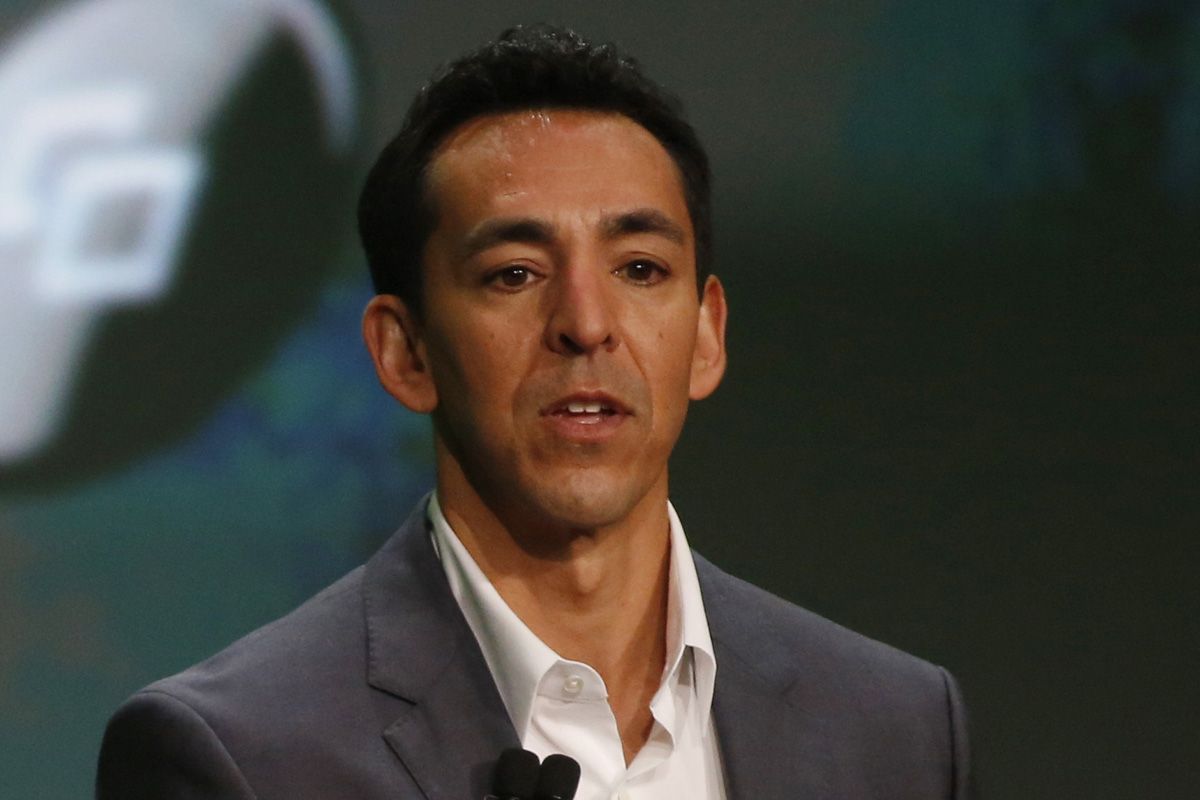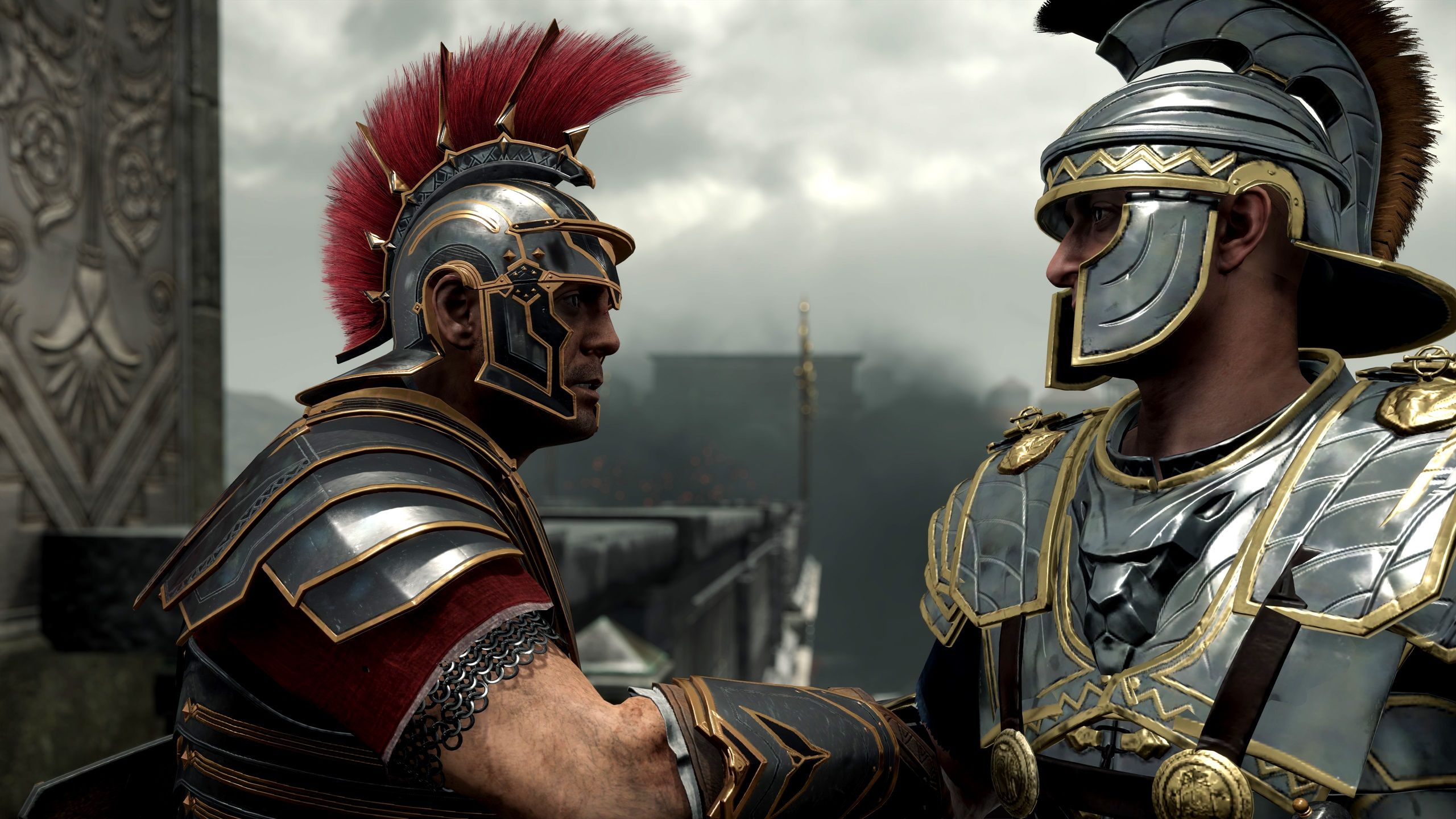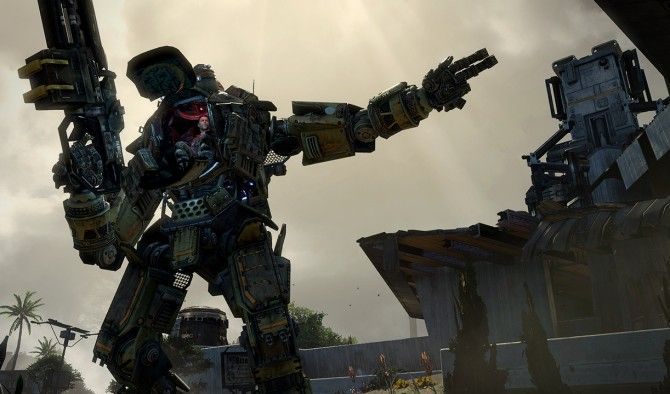On September the 3rd Microsoft Corporate Vice President Yusuf Mehdi was present at the Citi Global Technology conference and went into great detail in explaining Microsoft's strategy with the Xbox one to an audience of industry analysts and investors.
Needless to say, shots were fired, and a lot of elements that may baffle several gamers were detailed, including many of the why's and the how's many of us would like to know.
Mehdi started with an introduction on the current situation for the Xbox One, painting a very positive picture on preorders and sales perspectives.
We've had a bunch of trade shows and people have come and seen them, and we've had the best lineup of any console of games. On the game's side value we feel very good.
From a market demand perspective, we've been sold out on preorders for the Xbox One for several weeks now. We've built more than we've ever built for an Xbox launch. we are on track to have the biggest launch we've ever done by a wide margin for a console. Most units shipped at launch. And I expect there'll be multiple millions of people enjoying Xbox through the holidays as we get through the holidays. So feeling very good about progress.
He then continued by explaining the all-in-one entertainment strategy. If you care for the whole "TV TV TV" meme, this is where you'd play it on the background.
You think about before there were smartphones, there were regular phones. Then the smartphone came out and you said: "wow this is mobile computing device" and we think that TV’s are going to truly become smart TVs where you can browse, you can do Skype communication, you can do interactive television. Xbox One is key to opening up an entire world of next generation entertainment.
Xbox One is pretty unique relative to the rest of our competition because it's a games console, and it's an all-in-one entertainment service. We think that potentially broadens the market even beyond what you might expect for this next generation.
Most surprisingly, he talked about sales expectations for the first year, and the numbers here are rather mind boggling, with "tens of millions" mentioned.
Certainly in the beginning, it's primarily a gaming console. That's going to be the primary buyer. In all the research we've seen, there'll be tens of millions of buyers in the first year and in the research we do, over 90% of them own an existing console.
So I think there's going to be supply constraints in the beginning, and I think all those purchasers are going to be gamers.
The relationship with cable companies was also covered, placing Microsoft as a partner, and not as a competitor, adding value to the cable box you already have:
The Xbox One will work great with your set-top box. You literally can just with one HDMI cable plug in and now have live TV. So our model is to be partner-friendly and to work with the operators and to add value on top.
And the value on top that we add is interactivity, voice control, new generation of content, gestures with the Kinect. That's the big part of our differentiation.
Of course the investors attending the conference aren't really the most naive bunch, and Mehdi was thoroughly drilled on the decision to price the console $100 above the competition.
We've always thought to price the product super competitive in terms of being close to break-even or low margin, so that we can get as broad distribution as possible. In this version we made a couple of big bets.
We said that there are a lot of low-end sort of simple, casual game boxes. We wanted to have something to really differentiate that lets you play games as if you're playing movies.
We wanted to break the barrier of being able to voice control your television, and to do that we added a lot of capability. And so, the view we feel is that for $499, our price point, we think the value we provide for that is a very good deal.
We're looking to be break-even or low marging at worst, on the hardware, and then we make money selling additional games, the Xbox Live service and other capabilities on top.
And as we can cost-reduce our box, as we've done with 360, we'll do that to continue to price reduce and get even more competitive with our offering.
The comparison with the closest competitors was also brought up, with Mehdi explaining why Xbox (according to him) brings more value to the table, and downplaying the importance of pure specs:
First, I do think it's an incredible time for gamers. One of the things that has never happened is we go head-to-head with a competitor on a console launch. I think that's going to bring a lot of energy to the overall gaming market and a lot of focus and attention, and I think that's going to further grow the market. So I think in general it's a good time to be a gamer. We feel good about our business within that.
Competitively speaking, so far, I feel like we have a much better... more complete value prop. We do things that aren't found on other platforms with the Kinect, a huge piece of differentiation. As I said before, the fact that we do entertainment and gaming.
And then even if you just take gamers, hardcore gamers, gamers buy for the game. They don't buy for stats on a spec sheet. And if you look at the games we have, according to most industry experts now, a better lineup of games.
One of the most interesting parts of the Q&A was about the role of first party content and studios, with Mehdi detailing the fact that Microsoft will continue to invest into first party development primarily to showcase the platform and its capabilities.
I think for us, the role of first party content is, you know, kind of multiple fold.One is absolutely to be a profit driver. So Halo for example, is a great profitable enterprise for us. But it's also to help showcase the platform.
And so, one of the things that we can do with our first parties is we can ask them and say, "Hey, we would like you to really showcase Kinect." "We would like you to showcase how the future of interactive TV might look." And so let's build some shows. Let's build some entertainment. Some games that differentiate that.
And so, our first party studios have a tough job, because they're trying to both do some things that you might not do when you're trying to just maximize for profit, and at the same time, they're pioneering for the greater good because then we could pull through the rest of our platforms, our Xbox Live service.
So we continue to run a great studio and are expanding studios for games, and recently started an entertainment studio down in California, and they're the team that's doing the NFL work. They're also, as we announced, going to do a movie with Halo, and so those are two of the projects.
Another interesting detail was about the decision to develop the Xbox One internally instead of outsourcing development, and the effects it'll have on the hardware and software.
We're very convicted on being a company that's excellent on devices and computer services. One of the things we learned really well at Xbox now, going back a number of years, is that you can really build some breakthrough products when you can bring the software and the silicon design and the hardware design together.
And we've seen it a lot because there are trade offs that you make in terms of say the software that taxes the power supply or the heat factor in how you design a box.
And being able to have that together, you get efficiencies and you're able to build some breakthrough experiences. And so I think we're "fullsteam ahead." If anything, we have some of the best hardware designers and pioneers in Xbox now at Microsoft.
I've seen some other work that we've doing that we haven't talked about yet. It's really starting to pay off for us now to really have that software/hardware coming together. I see us only continuing to invest in that regard.
Mehdi also touched on gaming as a service, and on the profit margins it brings.
I think gaming will do a couple things as a service. I think, first of all, games are as I said, one of the fastest growing sources of entertainment content in the world.
Second of all, the gaming market today, depending on how you count it, is $11-12 billion of profit. About $4-5 billion is console gaming. You've got a couple billion in casual gaming. And then you've got a couple companies in Korea, in Japan, in China that are their own unique things, but when you look at those, it's a pretty big and growing profitable business.
We're going to continue invest in gaming to grow it, because we think it's just a great business that consumers want more and more of, and we think it can drive the profitable business for Microsoft. We also think it's a thing that'll differentiate our hardware, and not just Xbox, but over time, phones and tablets.
We think that we can bring unique games and unique experiences that will differentiate our hardware as a result.
We also got an interesting overview on the plans for digital distribution going forward, as Microsoft prepares to deliver its contents mostly digitally, even if concessions have been made to gamers that still like having their games on physical discs.
We're definitely a believer in digital, and digital games. Some of the excitement from the summer, post-E3, where people had a lot of questions about our vision for digital. I think we're a pioneer in thinking about digital. There's a lot of benefits for the digital system.
Some of the questions, for example, that came up: "Why digital games? Why not disc-based games?" Our view is what happened to movies and music and it's happening to casual games and tablets is going to happen to full games, which is 5 years ago, you'd drive down to a Blockbuster, rent a DVD, drive home and stick it in and watch a movie.
And now, you just turn your TV on, check the digital library and stream the movie. And maybe you already subscribe to it, so you didn't even have to pay for it. That's the benefit of digital. You can roam to a device and you can still have the content. That's the vision we have for Xbox One for a full game. And we're delivering a big chunk of that on day one.
Specifically, you can now buy any of the games that we ship day and date digitally through the store. You can go to your friend's house, log log in with your ID and have instant access to your entire games library.
So our digital vision has never changed, never wavered from what we announced at E3. What we did do is we added back some capabilities which is the ability to do disc-based games. So if you still want to have the disc-based thing, which is I can just loan it to my friend and he can use it, you can do that too.
Cloud gaming was next on the menu, and here Mehdi feels that technology is still not fully ready for it, perhaps taking a bit of a dig at Sony and its Gaikai-related plans.
Cloud gaming is another kind of implementation on top of that digital platform. We think cloud gaming is something that's very exciting, very compelling, but it still feels like it has a way to go technically before it works.
The challenges there are latency in particular and then some of the bandwidth. So you can do game trials and game demos, but to do full games, where you are not at a disadvantage to your friend who is playing locally, and that's a big barrier if you're a gamer, that's still going to take a bit of time technically. I say I'm long-term bullish, but short term, I think it needs more work.
The lack of backwards compatibility was also explained in detail, alongside with the promise of continued support for the Xbox 360:
Sure, I think the biggest challenge with backward compatibility was primarily the fact that on the game itself, just the architecture of the Xbox One is so different and so, it really was impossible to make it a simple way to have all those games work in a backward compatible way.
I think you're seeing the same thing from other players as well in the industry. That's the thing we wrestled with. We do care a lot about the investment that consumers have made in their Xbox. Some things we're going to carry forward through the Xbox Live service, carries over to Xbox One. So one service works across both devices. You don't have to buy a new one.
And obviously, as you start to get the games that are digital, both will work across devices, but there was just a challenge with getting the backwards compatibility on that.
One thing we're going to do to try to help ameliorate some of the challenges is we're going to to continue to invest in Xbox 360 and the two devices can work in concert. So it isn't like the day we ship Xbox One, your 360 won't work. We're going to continue to support it. The fact is we're going to ship over 100 new games on Xbox 360. So you'll be able to still play your games, just not on the exact same box.
Xbox Live is of course still a very relevant focus for Microsoft, and one of the biggest sources of revenue, and Mehdi expects it to appeal to a broader audience as time goes on and more services are added to it.
From our perspective we're really focused on doing an amazing job with Xbox Live Gold. It's been a huge success and really, people have really sought after it. We're putting more and more value into it. One of the things we announced earlier this summer is a program called Games and Gold where we give away a free game to keep. In fact you can keep it even if you cancel your subscription. We're doing two a month.
These are big games, including Assassin's Creed and an earlier version of Halo. So we're going to continue to invest in that. We see a lot of demand. Our Live usage now is up to...the average Xbox Live Gold users in the US averages 87 hours a month, so we're talking about 3 hours a day of usage. And people are really into that, and that's for gaming, and then for streaming of movies.
As we bring on Live TV and add additional capability, so you never have to be away from it, we think that our usage can drive up and that value prop can appeal to a broader audience.
Finally, could the "power of the cloud" be missing from this long romp through Microsoft's strategy for Xbox One?
One of the things we're doing with Xbox One is we're really tapping into the Azure cloud service we've got, and we have about 300,000 servers now that are available for game developers to create their games so that we can do a lot of cloud compute for the gaming.
And the benefit of that is that in the past, and with other systems, what people do is they do kind of client-side hosted boxes. People can hack those and then cheat to win in gaming.
With these services now, if you're a game developer, you can't afford to build out all these servers if you don't know if people are going to use the servers...and then it explodes and you can't go do them.
Now we're allowing people to actually tap the cloud to go and use our services. That's 300,000 servers. We talk about Call of Duty now taking advantage of it. Titanfall is another big game that will take advantage of it.This will be a big differentiator for us.
And it's going to be a valuable thing for the company as we leverage all of those servers in the Azure cloud to power our productivity and entertainment services.
And that wrapped the conference up. Mehdi definitely seems to have a very clear and ambitious idea on how to make Xbox One successful, but will gamers and consumers really embrace it? And "tens of millions" in the first year at that? That's a big "if" that we'll see about quite soon.
If you want to hear the whole conference with your own ears you can check out the video below, courtesy of YouTube user onlysublime2.
//www.youtube.com/embed/2NImt8WzfSo




